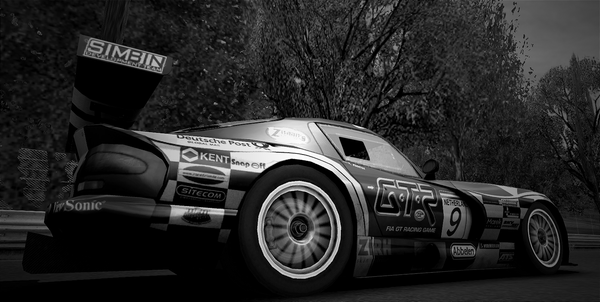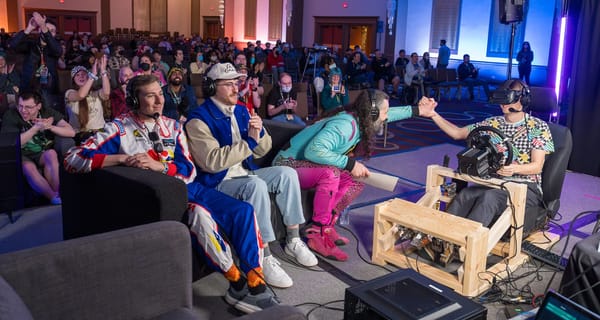The Powerhouse Begins Here.

Welcome to Powerhouse Takahashi.
A home for my musings and thoughts on the world of racing video games, a genre that can attest to being there since the very beginning of video games as we know them in the 1970s. However, the early origins of the medium goes back to the first half of the 20th century with electro-mechanical games replicating and simulating the act of driving and racing a car, before moving into the realm of the virtual and digital as we know it today.
Few genres can continuously attest to being at the forefront in the evolution of technology in video gaming the way racing games can. Every step of the way racing games have been there: from the early days of moving from the arcade into the home through the 1970s and 80s, to the transition from two dimensions to three for gaming in the 1990s, and to being at the forefront in that endless chase of perfecting photo-realistic graphic fidelity that has been one of the defining factors in video gaming in the 21st century, racing games have always been there, and for good reason.
Of all the genres that exists in the spectrum of video gaming, the only other genres that can come as close to allowing the player to replicate an act that can be done day to day with a near 1-to-1 level of accuracy to the real thing are flying simulators and tabletop simulators. Any attempt to shoot a basketball into a hoop, fire a bow and arrow into an enemy soldier, or jumping rooftop to rooftop in a bid to escape capture cannot yet truly replicate the full range of motions, senses and experiences that can be possible with driving a car from the comfort of home.
And even then, racing games themselves can never fully replicate the real thing; so much of what a real driver experiences while behind the wheel they experience with their whole body. Someone playing a racing game will only get such motions and feeling purely through what they see and hear from their monitor and speakers and with what their preferred controller of choice is telling their hands and feet. A real racing car is bending the force of gravity, playing chicken with the air, and pushing the driver's body to limits that before the industrial revolution could not have been possibly imagined, you do not get those experiences playing iRacing at home using a Moza R5 steering wheel in the same way. Your brain is interpreting everything all those forces that are being calculated by the game that are then being told to you through the monitor, speakers, wheel and pedals to then try and use all that information to try and achieve the same goal as someone driving and racing a real car around a circuit.
But the end result of that is something truly, truly remarkable. Video gaming is incredibly important in allowing people to chase dreams and fulfill their imagination in ways that they would otherwise not be able to achieve, with sports and racing games being at the forefront of that. Just 76 people have won the Indianapolis 500, but how many more have won The Greatest Spectacle in Racing and been able to enjoy those emotional highs through video games, either against the in-game opponents or against other people across the globe? How many people grew up wanting to be Jeff Gordon and got to live out their dream racing against their hero in one of many NASCAR-licensed racing games? Well, me, for one.
There is so much to talk about, so much to explore, and so much forever changing in the world of racing games. It's going to get messy, it's going to get deep, and it's going to get heavy at times and I wouldn't have it any other way.
Welcome to the Powerhouse.





